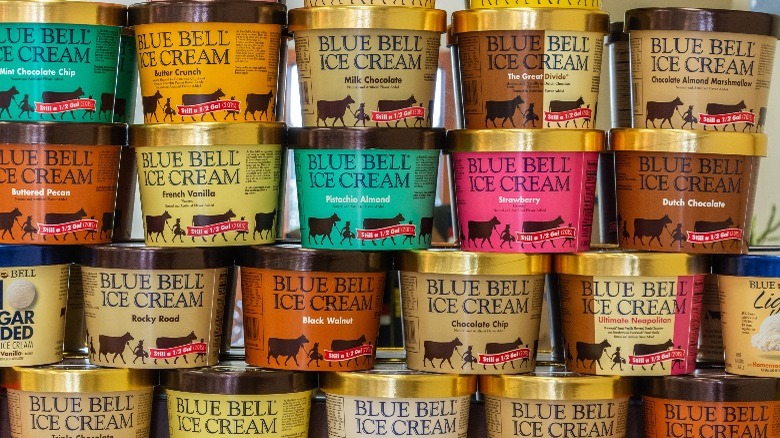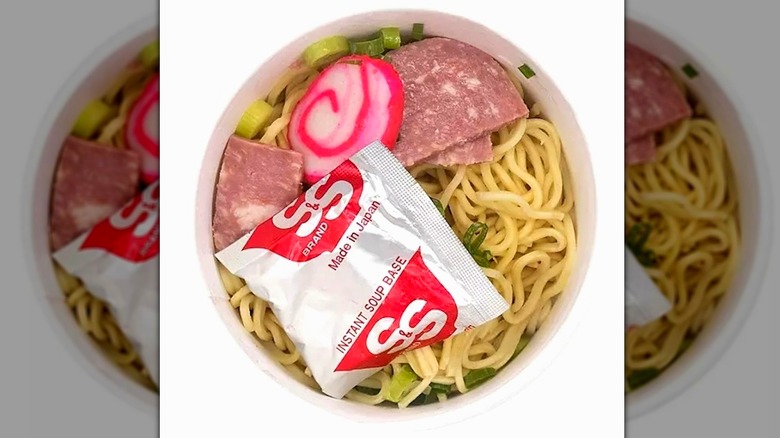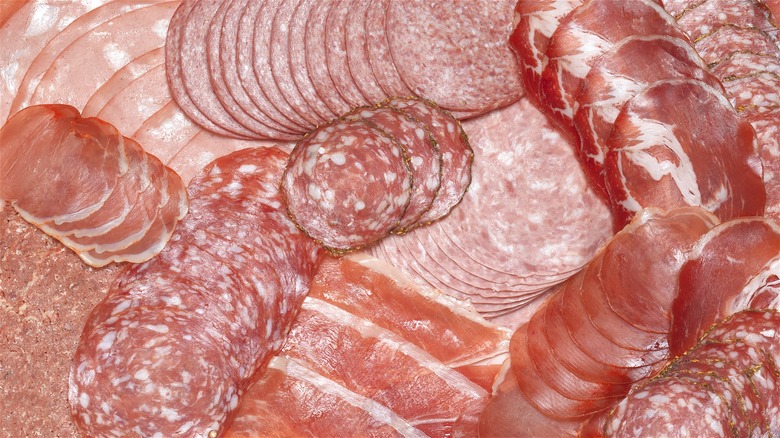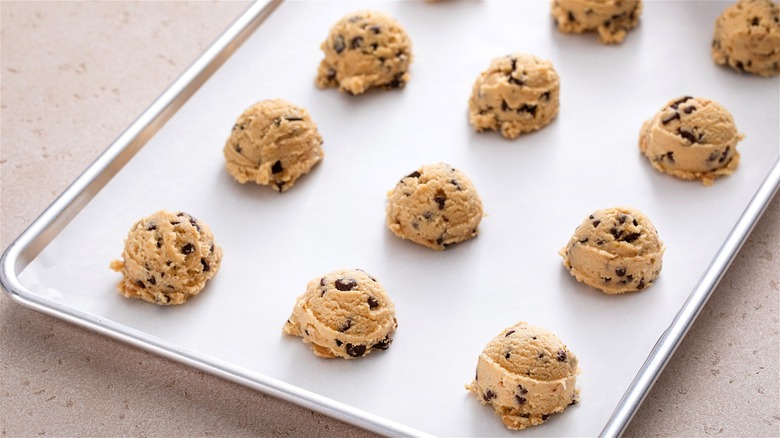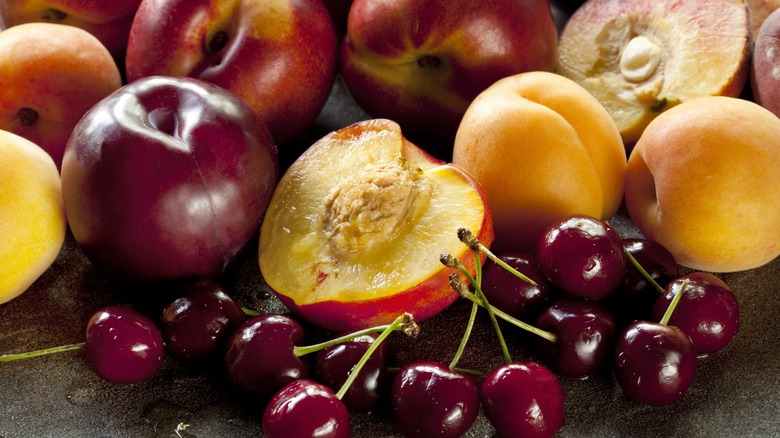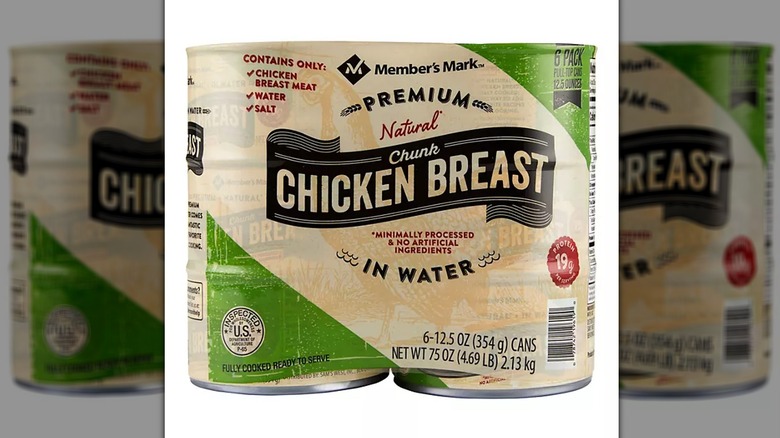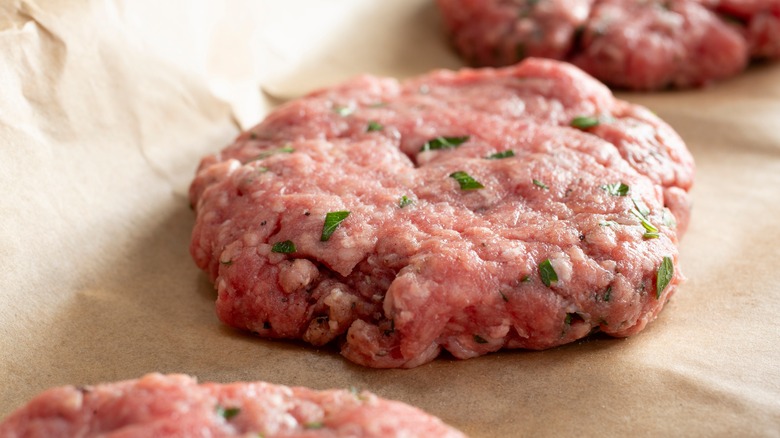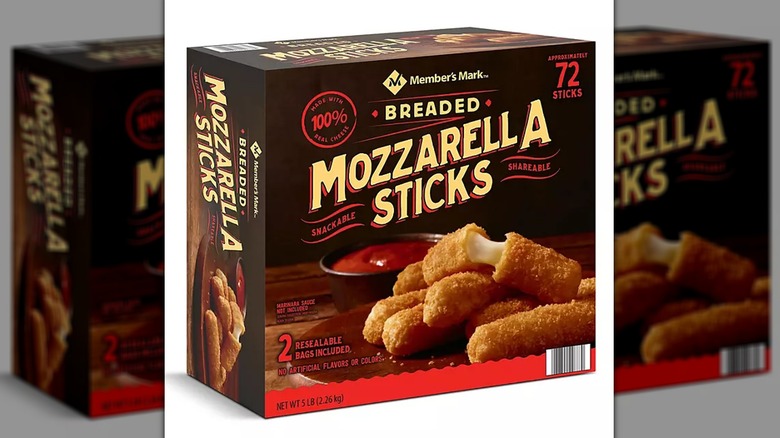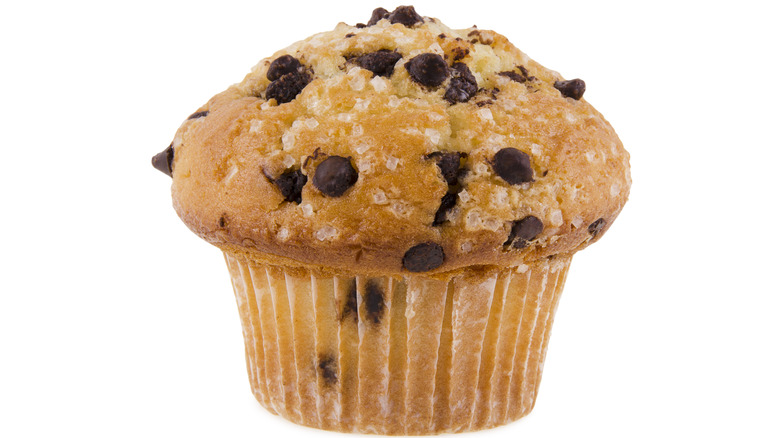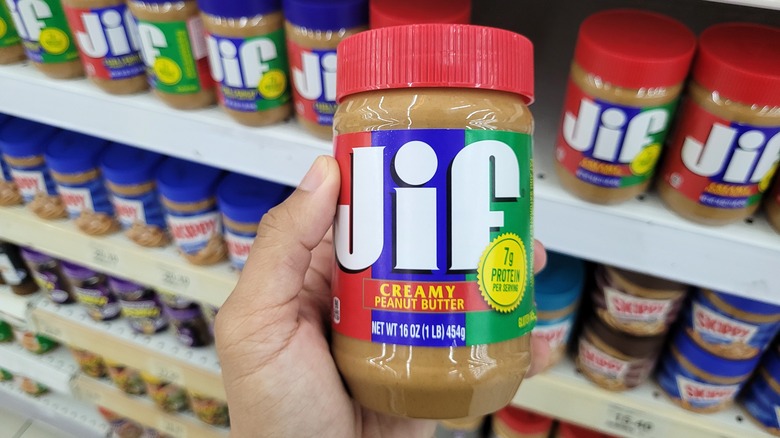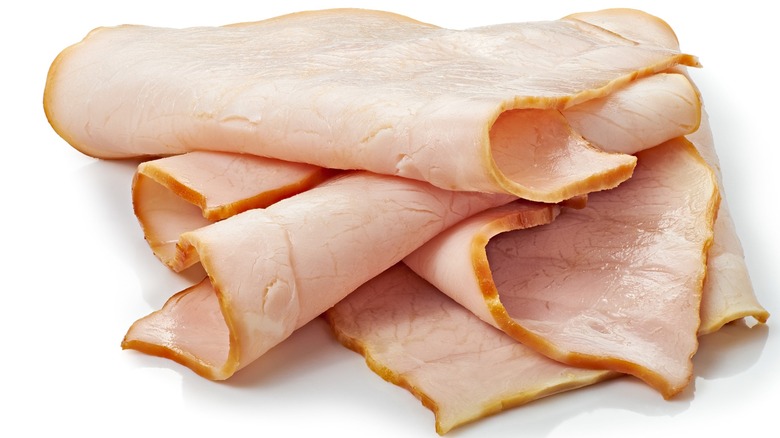Recalls That Will Always Haunt Sam's Club
We may receive a commission on purchases made from links.
Food recalls are a reality of the United States' interconnected food supply chains. Unfortunately, suppliers have consistently demonstrated that they are unable to handle this reality, with the frequency and number of recalls growing in recent years. As a result, the responsibility is increasingly placed on grocery chains like Sam's Club to execute quick and efficient recalls that minimize the impacts of potentially harmful, products.
Sam's Club does quickly inform its members of recalls, usually by emailing or calling them. Unfortunately, the reactive nature of recalls often means that even this prompt action is too late to prevent some customers from ingesting a recalled product. Illnesses, injuries, and dissatisfaction arise as a consequence.
While all food recalls are serious, some pose a greater danger than others. This may be due to the scope of the recall, what is wrong with the product, or who is the product's target audience. As a major retailer, Sam's Club has had its fair share of very serious recalls, as the following examples illustrate.
Ice cream recalled due to a Listeria contamination
In 2015, the Centers for Disease Control and Prevention announced that ice cream from popular Texan company Blue Bell Creameries had caused an outbreak of listeriosis, an infection caused by the consumption of Listeria monocytogenes bacteria. After this announcement was made, Sam's Club pulled all Blue Bell Creameries products from its stores. Other retailers, including H-E-B, did the same.
Despite the best efforts of Sam's Club and other retailers, the contaminated products wrought havoc on the American public. At least 10 people required hospitalization due to contracting listeriosis, and three people died after eating the contaminated ice cream. Five of those who fell ill contracted the infection while staying in a hospital in Wichita, Kansas. It was later discovered that these people, who were in the hospital for unrelated illnesses, consumed a milkshake that contained a scoop of Blue Bell Creameries' ice cream during their stay.
Investigations revealed that illnesses linked with this strain of Listeria bacteria occurred as early as January 2010, suggesting that Blue Bell had been selling contaminated ice cream for years. Further drama was to follow, as Paul Kruse, Blue Bell's CEO at the time, was taken to court amid allegations he initially attempted to cover up the contamination. The trial ended in a hung jury and Krus eventually pleaded guilty to a misdemeanor.
Frozen noodle soup recalled over an undeclared allergen
As reported by the Food and Drug Administration, Sun Noodles, a company based in Hawaii, issued a recall in May 2024 after one of its frozen Saimin products was found to contain egg, an allergen that wasn't listed on the product's packaging. Just over 37,000 cases of S&S Cup Saimin were then recalled. The recalls occurred at nine Walmart stores and two Sam's Club locations in Hawaii. Further recalls were issued on the U.S. mainland for those distributors and retailers in California, Nevada, and Utah that had purchased the noodles.
The undeclared egg was included in a fish cake that sat atop the frozen noodle mixture, posing an enormous risk to those with egg allergies. While reactions to this product could have included serious reactions, including vomiting, cramps, and anaphylaxis, neither Sam's Club nor Sun Noodles reported any illnesses or reactions occurring as a result of customers eating the noodle product.
Charcuterie meat recalled due to a Salmonella outbreak
In one of the biggest food recalls of 2024, both Sam's Club and Costco issued mass recalls during March when it was discovered both brands were selling charcuterie products contaminated with Salmonella bacteria. Consuming this bacteria is known to cause an infection called salmonellosis with symptoms including vomiting, fever, and stomach pain.
An investigation by the CDC found that Fratelli Beretta USA, Inc. supplied Sam's Club with the contaminated charcuterie under the Busseto brand. At Costco, the affected charcuterie product was sold under the Fratelli Beretta brand. Further contaminated charcuterie products were sold by Aldi, Lidl, and several other retailers who all issued their own recalls.
These charcuterie products were widely distributed, resulting in a Salmonella outbreak that sickened 104 people in 33 states. Reportedly 27 of these individuals required hospitalization. Fortunately, no one died as a result of the outbreak. As the products have a six-month shelf life, these shocking numbers may continue to rise after the time of writing.
Cookie dough recalled over Salmonella concerns
As per an enforcement report filed by the FDA, Rise Baking Company recalled just over 29,000 cases of various cookie dough products in May 2024 amid concerns that they were contaminated with Salmonella bacteria. The recalled products included Member's Mark Chocolate Chunk cookie dough pucks sold by Sam's Club, as well as a similar product stocked by Costco. The subsequent recall impacted stores and restaurants in 21 states.
At its peak, the recall was given Class II status by the FDA. This classification means that there's a possibility of people who consume the product undergoing mild but reversible illnesses, with only a slim chance of serious illnesses occurring. This rating turned out to be accurate; the efforts made by Sam's Club helped protect the American public from falling foul of this potentially dangerous product. No illnesses or fatalities were reported in conjunction with this cookie dough recall.
Frozen macarons recalled due to plastic contamination
In 2022, just five days before Christmas, Sublime Desserts and the FDA initiated a recall for 148,800 units of Sam's Club's Member's Mark Holiday Macarons. This product was recalled amid concerns that it was contaminated by small, inedible pieces of plastic. It is not known how many Sam's Club stores the faulty product ended up in.
While a manufacturing fault likely caused the product to become contaminated with pieces of plastic, it was another aspect of the macarons that was of great concern during the recall: the fact they were frozen. Recalling frozen products is far trickier, as they usually have very long shelf lives. This means the product can injure people months after the product was purchased. In this instance, the macarons had an extremely long shelf life, with some lasting until the following December. Thankfully, both Sublime Desserts and Sam's Club executed a successful recall and there were no reports of illness, injuries, or fatalities arising due to the consumption of the faulty macarons.
Stone fruit recalled over Listeria concerns
In food safety, fruits are high-risk items, for the simple reason that they are usually eaten raw. This means potentially harmful bacteria are not killed by high cooking temperatures prior to eating, greatly increasing the chances that customers who purchase and eat them will become ill. This made it all the more alarming when the FDA announced that peaches, plums, and nectarines potentially contaminated with Listeria monocytogenes bacteria had been supplied by HMC Farms and sold nationwide at a variety of retailers, including 93 Sam's Club locations.
The fruit was sold from May 1 to November 15 during 2022 and 2023. However, a recall wasn't issued until November 2023, as this was the first time illnesses had been linked to the products in question. Despite the affected fruit having been sold a long time ago, and having most likely been eaten, the recall was still issued just in case any customers had frozen the fruit for later consumption.
Due to the late nature of this recall, 11 cases of listeriosis were reported across California, Colorado, Florida, Illinois, Kansas, Michigan, and Ohio. Reportedly, 10 of these illnesses resulted in the patient being hospitalized, and one individual died as a result of their illness.
Smoked salmon recalled amid listeria concerns
In 2012, it was reported that Sam's Club, in conjunction with suppliers Multiexport Foods Inc. and Tampa Bay Fisheries Inc., was recalling smoked salmon products from stores in 42 states. The products were pulled over concerns that the fish had been contaminated with Listeria monocytogenes bacteria.
Two products were involved in the recall: cold smoked salmon sold in 12-ounce packs, and a Paramount Reserve product that was sold in a 1.25-pound bundle. As pre-cooked, ready-to-eat products, both of these items posed a significant risk to customers.
As with all food recalls, customers were advised to dispose of the products without eating them, or to return to the store for a refund. People must have done as they were told. That's because, fortunately, despite the salmon having been distributed across the country, there were no illnesses reported as a result of people consuming either product.
Canned chicken recalled due to plastic contamination
Tony Downs Food Company was responsible for producing two canned chicken products for Sam's Club in 2017. These products were: 12.5-ounce cans and 50-ounce cans of Member's Mark chicken breast in water. Unfortunately, both of these products were contaminated with pieces of hard plastic during the latter days of November 2017.
According to the U.S. Department of Agriculture's Food Safety and Inspection Service, this mistake was only discovered in March of the following year, when two customers complained of finding pieces of hard plastic amongst the chicken. Sam's Club acted quickly, issuing a recall for 96,384 pounds of the canned chicken, but only 38,000 pounds were successfully recovered. Despite over 55,000 pounds of the potentially faulty product going unaccounted for, no injuries or illnesses were associated with the plastic-laden canned chicken, a lucky escape for both Tony Downs Food Company and Sam's Club.
Beef patties recalled after an E.coli outbreak
During the late months of 2007, meat supplier Cargill issued a recall for its ground beef patty products. Around 845,000 pounds of the product were recalled over concerns that they were contaminated with the E.coli bacteria strain 0157:H7, which is known to cause severe symptoms in humans including cramping, diarrhea, and nausea. In some circumstances, infection with this strain can lead to a condition called hemolytic uremic syndrome, a condition which can lead to kidney failure and seizures.
Cargill issued the recall when four children became seriously ill after eating Cargill hamburgers sold in Sam's Club stores. Once notified of the product's contamination, Sam's Club voluntarily made the decision to pull all Cargill ground beef products from its stores nationwide. Unfortunately, several other people fell ill before the recall was issued. These include a 22-year-old woman called Stephanie Smith, who became paralyzed from the waist down as a result of her illness. Scientists suspect that just under 1,000 people fell ill due to eating the contaminated beef, with four people in Minnesota alone contracting hemolytic uremic syndrome.
Due to issues around tracing, it is not exactly known how the E.coli bacteria ended up in the Cargill products. However, an investigation by reporters at The New York Times unearthed numerous unhygienic practices at Cargill's meat plants, as well as substandard tracing and testing procedures.
Mozzarella sticks recalled over undeclared allergens
In July 2023, the FDA announced the news that Rich Products was recalling 15 cases of breaded mozzarella sticks sold under the Member's Mark brand, because they contained two undeclared allergens. Despite only a few cases being faulty, the recall was wide-reaching, with cases being recalled from Sam's Club stores in Kentucky, Ohio, Pennsylvania, Virginia, and West Virginia.
Both egg and soy were not listed as allergens on the packaging, because they were not meant to be included in the product at all. A manufacturing mistake, which erroneously caused the wrong ingredients to be added to the product, was the reason behind the inclusion of both egg and soy. Thankfully, no allergic reactions or illnesses were reported as a result of people eating the mozzarella sticks at the time of writing, although the frozen product's long shelf life means that some of the allergen-laced mozzarella sticks may still be in customers' freezers.
Chicken nuggets recalled amid contamination concerns
Tyson Foods is one of the biggest food and beverage manufacturers in the whole of North America. While this means the company can produce a great deal of food quickly, it also means that when something goes wrong, even for a short period of time, a lot of food is affected. This was the case in April 2014 when Tyson Foods recalled 75,320 pounds of frozen, cooked chicken nuggets that were sold exclusively at Sam's Club stores.
The chicken nuggets were recalled after some Sam's Club customers complained that they contained small pieces of plastic. The issue was traced back to a faulty product scraper which was used for two days at one of Tyson Foods' factories. Some customers suffered minor injuries to their mouths as a result of eating the chicken nuggets. Despite this, the FDA gave the recall Class III status, the lowest possible.
Muffins recalled due to Listeria contamination
In July, Give and Go Prepared Foods announced it was recalling 26 muffin products over concerns they were contaminated with Listeria monocytogenes. As per the FDA, these products were sold under a slew of brand names and by a number of different grocery store companies – Sam's Club included. The reason so many stores were affected is that Give and Go Prepared Foods is a subsidiary of Mondelēz International, a huge, international company with an abundance of supply contracts. Recalled muffin flavors included blueberry, banana nut, and chocolate chip.
Traces of Listeria monocytogenes were found on the products during routine environmental monitoring programming. Recalls were subsequently issued by multiple retailers, including 7-Eleven, Sam's Club, and Walmart. The recalls evidently worked; no illnesses were reported in association with the muffins, despite there being over 25 different products that posed a potential risk to human health.
Peanut butter recalled due to Salmonella concerns
Jif, a popular brand of peanut butter made by J.M. Smucker Co., was recalled from retail stores nationwide in May 2022, when it was discovered the product had been linked with a Salmonella outbreak. Multiple grocery store brands issued recalls, including Sam's Club, which recalled the product from every one of its stores nationwide.
According to the FDA, Sam's Club's and other retailers' recalls were only partly successful. Reportedly 21 people fell ill after eating the Salmonella-tainted peanut butter, with four of them requiring hospitalization. The outbreak was traced back to a factory in Kentucky. An investigation conducted by the FDA discovered that J.M. Smucker Co. had detected Salmonella during its own testing in 2021, but its attempts to address the cause of the issue were ultimately unsuccessful.
The factory in question had long suffered from leaks that introduced water into the facility. Despite the company's attempts to address these issues, leaks persisted, and this water was likely the cause of the contamination. Unsanitized air and water were even found to be entering into the factory's roaster, meaning peanuts that would've been bacteria-free after cooking were reinfected during the cooling period. Given these failings, it's no wonder that grocery store brands such as Sam's Club had to pull Jif products from their shelves.
Ham recalled because it contained rubber
In September 2016, the FSIS shared the news that 502 Boundary Blvd. was recalling just over 8,600 pounds of ham, over fears it had been contaminated with pieces of rubber. It's not known how pieces of rubber came to be embedded in the ham, although the likely explanation is a manufacturing fault. Produced and packaged in Ontario by Sofina Foods, the ham was shipped to Costco and Sam's Club stores in Alaska, Utah, and Washington. The issue was reported by a customer, although it is not known from which store the individual bought the product.
Aside from being a choking hazard, these pieces of rubber also posed a risk, due to the plethora of chemicals that are used to create the material. For this reason, the FDA gave the recall Class II status. Luckily, there were no injuries or illnesses associated with the product.

